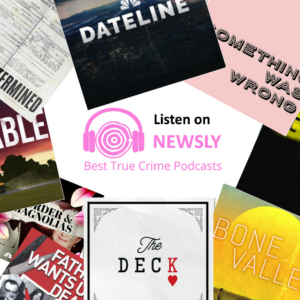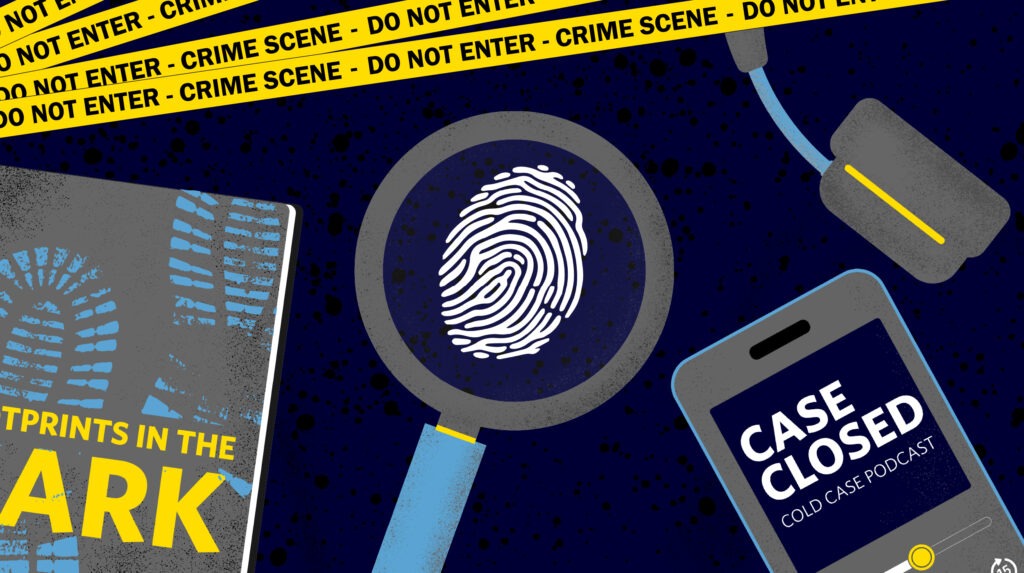The topic of true crime is known almost everywhere. It is an interesting topic that the public has gotten a hold of for entertainment purposes. It became popular in the media during the early 2000’s and as the years went by, we’ve seen the rise of podcasts and the media discussing different crime cases. Especially now, the rise of podcasts has been very prevalent and there are more true crime cases being discussed and even being solved after many years of being closed or unsolved. With this type of topic, there is a certain sensitivity to it that not many people consider. So that renders the question, is the glamorization of true crime ethical or not?
History of True Crime
True crime is defined as the non-fiction genre of literature and films involving real crimes and real people. Many television shows, television channels, movies, and books are often made because of these cases. 1 Some examples include Criminal Minds, Court TV, Dateline, Law & Order: Special Victims Unit, Zodiac and many more. One of the first books ever written about true crime was in 1920 by Edmund Pearson called “Studies in Murder” which was about the infamous case of Lizzie Borden. As for television shows, Telecrime was the first British crime drama that aired from 1938-1946. The show was a “whodunit” sort of show that let the audience try to solve the mystery before the detective. 2 Court Tv (television channel) also became very popular for showing documentaries, analyses, and different crime cases. 3 One of the first major true crime cases ever shown on air was the O.J Simpson trial. The media was heavily involved in this case, and it was broadcasted by CNN and Court Tv, thus creating the idea for Fox News and popularizing true crime in the media after that. 4
True Crime in Podcasts
There are many other outlets such as podcasts that use true crime as their main base for information/entertainment. A podcast is defined as a program made available in digital format for automatic download over the internet. In comparison to a radio program which is defined as a form of media communication by radio waves through the transmission of music, news, and other types of programs to individual listeners. Podcasts weren’t popularized until the late 2010’s with one of the first true crime podcasts being called Casefile, which was established in 2016 by an anonymous host. The podcast touches on different investigations, circumstances, and trials of both solved and unsolved cases. 5 This podcast definitely sparked a peak in true crime podcasts in the upcoming years. As for radio programs, The Public Broadcasting Service or better known as PBS also made a name for itself with all their radio shows they broadcast about crime. 6
I personally listened to four true crime podcasts/radio shows from different countries that just discussed the details of specific stories and am sharing opinions on them to contextualize the ethical issues. I listened to Bad Women: The Blackout Ripper from England, Rotten Mango from the U.S, Cuento Crimen from Mexico & Death Radio from Japan. Listening to different radio stations and podcasts talking about these cases make for interesting thoughts as well.
To start off, Death Radio (Japan) is run by a young Japanese woman who brings different guests to her podcast. In this episode, her guest was a young Brazilian man who talked about how different perpetrators from Brazil commit crime due to certain circumstances, mainly money. He explained how there was a man who was a notorious serial killer and rapist who terrorized Sao Paulo, Brazil. It was interesting to interpret the different taboos and superstitions from the stories he told. The host, being from Japan, explained how there is not that much crime or violence in Japan, so she was surprised to hear how much crime was committed in Brazil. And the guest who was talking about the Brazilian serial killer, said that when the man got caught, he was sentenced to 30 years in prison and was even famous to the point where he was signing autographs in prison. It was also interesting to notice that during the podcast, while the guest was telling the story, he was very playful like joking around. It didn’t really seem like he was telling a true crime story, and he was also short with the details. Which expands the question about whether or not creators who use true crime as their source of content, if true crime is being glamorized by them. 7

In addition to the true crime radio/podcast sessions, Stephanie Soo is a South Korean podcaster who discusses different true crime cases in her podcast by the name of Rotten Mango. Although she is based in the U.S, she grew up with South Korean culture and traditions. Soo discussed a case of a South Korean billionaire that was directly and indirectly linked to two very famous cases that resulted in over 375 people dead. She even had a whole introduction to the video and a logo and everything. It is evident that she is serious about the podcast and isn’t playful or unserious about the cases. I would also like to point out that the video is more than one hour long. Andthe whole time she not only talks about the case, but she also talks about the background of the case, the people connected, other victims, and different point of views from the actual case. This podcast specifically argues against the fact that people glamorize the concept of true crime because Soo spreads awareness instead of just using it as a source of entertainment. 8
Cuento Crimen originates in Mexico. The episode is in Spanglish which is a mix of English and Spanish. So, it caters to two different audiences. Diving into the episode, they explain that before continuing the story, they are telling the story of this case with respect to the victims and the victim’s families. This was very different from the other podcasts because others don’t offer that type of disclaimer, even if they do have respect for the victims and families, they don’t explicitly say that. This it’s a good disclaimer because it directly identifies the ethical issues of respect, caring and honesty. Producers of Cuento Crimen also explain the case with seriousness including details and explanations. It’s also very interesting to note that the hosts discuss the case with empathy for the women who murdered many men. It’s almost as if they are able to understand why women would commit these murders and feel bad for the effect this has on them. The other people podcast hosts had very different tones of voice but no detectable empathy. [ 9. “Cuento Crimen” (September 2021) 1.]
The last podcast was called Bad Women (England). This last podcast talked about the infamous Jack the Ripper story. Hallie Rubenhold is an award-winning historian and author and Alice Fiennes who is a criminologist are the hosts of this podcast. Rubenhold is very familiar with a certain version of the story. Both Rubenhold and Fiennes tell the story by inserting real people talking about Jack and insert different versions of the story as well. They also had researched many different sources and compiled information from the many different perspectives of the same story. They also explain how everything the audience knows about Jack the Ripper are just different stories from different people. Throughout the episode, we hear their tones of empathy towards the victims as well. 9
All in all, these radio shows/podcasts are very interesting and it’s obvious that the creators are very serious about true crime. Although podcasts can be interpreted as social media, there are different creators on other apps that make the same content but with different reasons and unique perspectives.

The Ethicality of True Crime
Many creators use outlets such as YouTube, Tik Tok, Twitter, and Spotify to upload cases discussing the details of true crime cases. Different forms of media that have been linked to true crime have all been successful and very popular. Whether the stories were used for just content or actual awareness, the genre of true crime has amassed a very large audience. According to Variety magazine, a Pew Research study said that “nearly a quarter of top ranked titles in America focused on true crime stories.” 10 Looking up true crime on X there were many different accounts and communities that just talk and discuss true crime cases. I even went as far as to join a community called “True Crime Crew” where the group shares news and updates related to current and historic infamous cases and tries to solve them. The group actually has over 1,500 members. On Tik Tok, the true crime hashtag has over 794,300 posts. That’s just one hashtag, there’s over twenty hashtags that mention true crime and all of them have more than five thousand posts each.
Many people dabble into solving true crime cases once in a while and some people consume it as if they need it to live, which can come off as concerning. Everyone has the right to consume as much media as they want but after a certain point it gets to a point where people wonder why they consume so much media. 11 Although it can be argued that ethicality does not exactly exist in the social media realm, too much media consumption can have its consequences. Social media impacts mental health and can actually have side effects to it. According to Penn Medicine, people who use social media everyday can experience depression, anxiety, and loneliness. 12 An unhealthy obsession with consuming true crime can also be harmful because sometimes creators don’t have a background in Criminal Justice, Criminology, Psychology or even Forensic Science and it is more than likely that they misrepresent something, or they just spread false information. Another thing that is very harmful in regard to the genre, many people are only interested when a story involves murder and gore. When people consume a genre that constantly reveals the worst parts of humanity, they can start to doubt everything and become paranoid. 13
The basis of true crime exists for entertainment purposes, but at what cost. Many people lost their lives, are victims, traumatized, and lost loved ones and yet many content creators use their stories to gain viewers (not all). Not only that, but viewership is also now being monetized in YouTube and Tik Tok so all the content that is being put out about different cases is being used to earn money. 14 Also, none of that money goes towards the victims or the victim’s families unless the creator decides to donate the money. Since the genre became so popular, it’s easy for creators to gain revenue with all the viewers they gain from just a single case.
There are also many videos and examples of different stories and different cases from around the world that become famous or heard of just because a creator reviews it. For example, during the summer of 2021, there was the infamous Gabrielle Petito case, where Petito and her fiancé (Brian Laundrie) went on vacation to various national parks and would regularly update family members and social media about their trip until she abruptly stopped updating. Many brought up the case on social media app TikTok and it went viral, even being updated on the local news and major news programs. The case ultimately resulted in viewers solving her case. It turns out, her fiancé was the main suspect and Petito died of blunt force injuries to the head and neck, along with manual strangulation. Before Laundrie could be tried, he died of a self-inflicted gunshot wound to the head. Awareness is something that the media doesn’t explore too often when considering true crime cases though. Although there are many cases that don’t involve any type of mystery or gore, those stories are often left in the dust and don’t get enough attention brought to them.
Although true crime remains as one of the most popular podcast and literature genres, its consumption stays half ethical and half not. From the research conducted, the amount of consumption of true crime remains unethical. It won’t always be like that though, as long as people are aware about what they are consuming and not letting it affect their daily lives. It’s okay to listen to a story once in a while, or at least to bring awareness because there are many victims whose story deserves to be remembered too. This is a global phenomenon and growth in the interest in true crime stories doesn’t seem to be slowing any time soon.

- “TRUE CRIME | English meaning – Cambridge Dictionary” (April 2020) 1. ↵
- “Telecrime 1946” (April 2021) 1. ↵
- “About Us Court Tv” (April 2024).1 ↵
- Danielle Grenon, The Impact on the O.J Simpson Verdict, (2020) 2. ↵
- “Casefile” (April 2024) 1. ↵
- Chelsea Bandi, 17 Must-Watch Detective Shows on PBS (August 2023) 1. ↵
- “Death Radio” (May 2023) 1. ↵
- “Rotten Mango” (May 2023) 1. ↵
- Bad Women: The Blackout Ripper (October 2021) 1. ↵
- Sophia Scorziello, True Crime is Most Popular Podcast Genre (June 2023) 1. ↵
- Kat Rosenfield, True Crime Distorts the Truth About Crime (October 2023) 1. ↵
- Christine Stabler, The Effects of Social Media on Mental Health (September 2021) 1. ↵
- Chivonna Childs, Is Your Love of True Crime Impacting Your Mental Health? (July 2021) 1. ↵
- Phoebe Lett, Is Our True Crime Obsession Doing More Harm Than Good? (October 2021) 1. ↵



2 comments
Natalia De La Garza
Your exploration of the true crime genre is detailed and insightful, addressing its history, modern evolution, and ethical implications with clarity. To refine this piece and improve the structure, flow, and academic tone, I’ve enhanced its organization and polished key sections while preserving your core arguments.
Madison Hinojosa
truly captivated by the abundance of information presented in this material; it is incredibly fascinating. My longstanding passion for true crime and its intricate facets make this content particularly engaging. The meticulous construction of the information further enhances its appeal and keeps me engaged. The depth of insights provided aligns perfectly with my interest in exploring the complexities of true crime narratives. I am consistently drawn to uncovering the nuances and details that contribute to a compelling true crime story, and this content has certainly delivered on that front. The cohesive presentation of the information ensures that the narrative is informative and immersive, allowing me to delve deeper into the world of true crime with enthusiasm and curiosity.